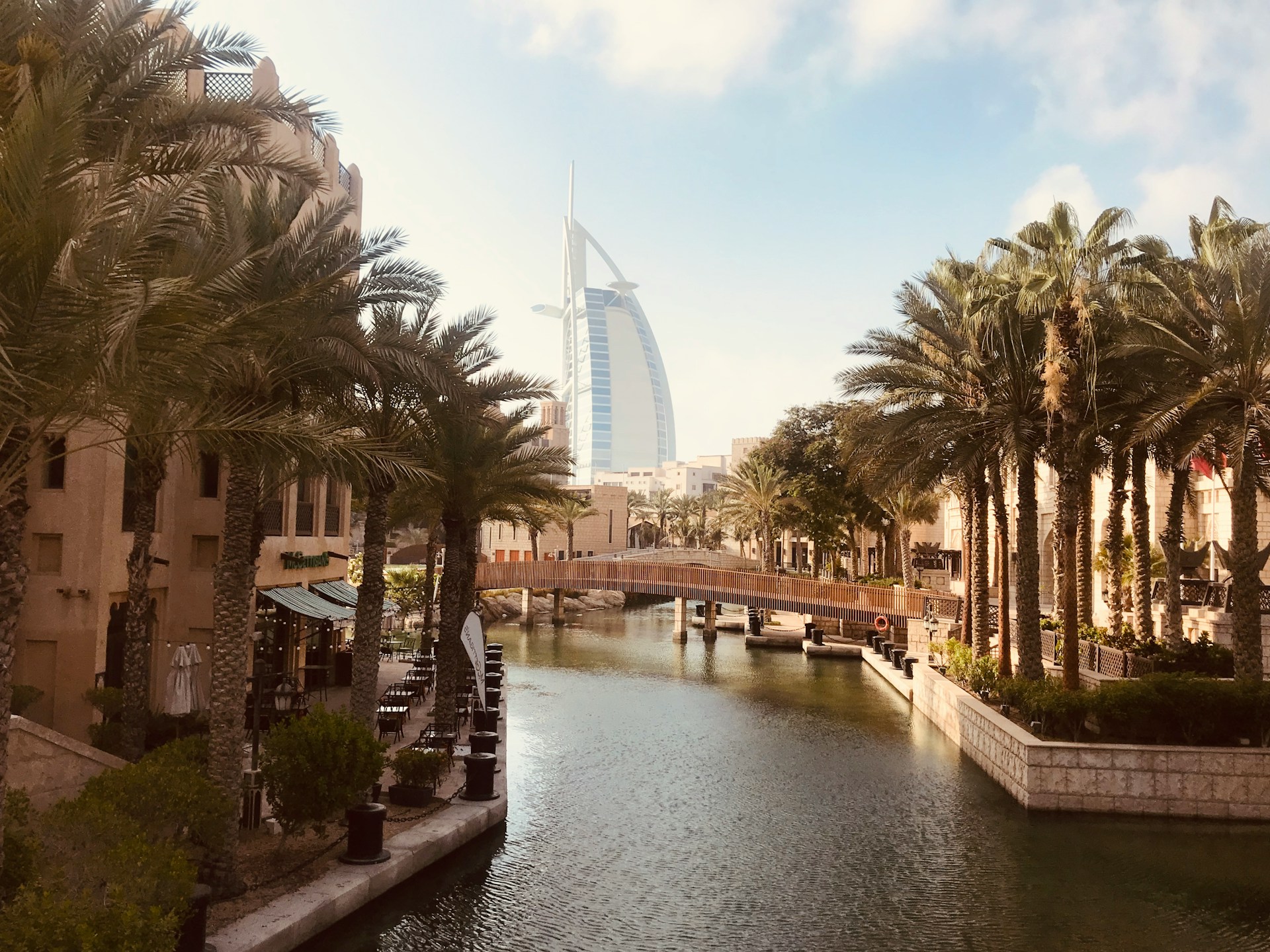nderstanding Real Estate Investment in Dubai as a Foreigner
Investing in real estate in Dubai can appear daunting, especially for foreigners. However, with the right knowledge and approach, it can be a straightforward venture.
Legal Framework for Foreign Investors
The UAE government has established a favorable legal framework for foreigners looking to invest in Dubai's real estate market. In specific areas known as freehold areas, expatriates have the right to own property. This means that as a foreign investor, you can purchase property outright, securing both a residence and a potential income stream.
Key aspects to keep in mind include:
- Title Deeds: Ensure that all transactions are officially documented and that you receive a Title Deed from the Dubai Land Department.
- Freehold Areas: Familiarize yourself with areas like Dubai Marina, Downtown Dubai, and Palm Jumeirah where foreign ownership is permitted.
The Market Dynamics
Dubai's property market is vibrant and continues to evolve. Many foreign investors are drawn to the city by its tax-free status, luxurious lifestyle, and burgeoning economy.
For example, imagine a friend who bought a downtown apartment and witnessed its value double over a few years. This reflects the strong potential for capital appreciation in the area, underscoring the benefits of starting real estate investment in Dubai.
Understanding these dynamics enhances an investor's ability to make informed decisions, ultimately leading to a successful investment journey in this bustling metropolis.
Benefits of Investing in Dubai Real Estate
Having established a fundamental understanding of the real estate landscape in Dubai, it's time to explore the tangible benefits that await foreign investors. The allure of investing in Dubai's real estate goes beyond its glittering skyline; it comes with numerous perks.
Strong Capital Growth Potential
One of the standout advantages is the strong potential for capital appreciation. The city has seen a consistent increase in property values, notably following major events like the Expo 2020. Investors can witness significant returns, much like a colleague who recently invested in a hotel apartment and saw a 30% increase in value within just two years.
Attractive Rental Yields
Dubai’s rental market is thriving, providing investors with attractive rental yields that often exceed 7% annually. Here are some reasons why:
- Tourism Hub: Millions flock to Dubai for tourism and business, increasing the demand for short-term rentals.
- Expat Community: With a large expatriate population, rental properties are always in demand.
Tax Benefits
Moreover, Dubai’s tax-free environment is a major draw:
- No Property Tax: Unlike many countries, Dubai does not impose property tax, maximizing your investment returns.
- No Capital Gains Tax: When selling a property, investors can enjoy their profits fully.
In conclusion, the benefits of investing in Dubai real estate are plentiful. With robust capital growth, competitive rental yields, and tax advantages, the opportunities are truly enticing for foreign investors looking to make a smart move.

Steps to Start Real Estate Investment in Dubai
With a solid grasp of the benefits associated with investing in Dubai real estate, it’s crucial to understand the specific steps to kickstart this rewarding journey. Navigating through the process can seem a bit overwhelming for newcomers, but breaking it down can simplify the task.
1. Research and Set Goals
Before diving into the market, take the time to research various areas, property types, and investment opportunities. Consider your goals—are you looking for a vacation home, a rental property, or an outright investment?
- Determine Budget: Reflect on how much you are willing to invest.
- Identify Locations: Favor areas known for high returns such as Dubai Marina or Downtown Dubai.
2. Engage a Reliable Real Estate Agent
Finding a trustworthy real estate agent can make all the difference. A knowledgeable agent can guide you through the nuances of the market and introduce you to properties that align with your goals.
- Check Credentials: Ensure they are licensed by the Dubai Land Department.
- Seek Recommendations: Ask fellow investors for their experiences.
3. Secure Financing
Understanding your financing options is crucial. Determine whether you will purchase outright, through a mortgage, or using other financing methods available to foreigners.
- Mortgage Options: Many local banks offer mortgages to expatriates, which can cover up to 80% of the property value.
As an example, a friend of mine who recently began investing found that securing a mortgage helped him expand his portfolio much faster than expected.
Taking these initial steps not only paves the way for a successful real estate investment journey in Dubai but also sets a strong foundation for future growth.

Financing Options for Foreign Investors in Dubai
Having laid the groundwork for entering the Dubai real estate market, understanding the financing options available can truly empower foreign investors. Knowing how to fund your investment can directly influence your strategy and potential returns.
1. Cash Purchase
One straightforward method is a cash purchase. If you have the capital available, this route offers several advantages:
- Simplicity: No banks or financing approvals are involved, leading to a quicker transaction.
- Negotiating Power: Sellers are often more inclined to negotiate with buyers who can pay upfront.
For example, a colleague of mine opted for a cash purchase on a luxury apartment, which allowed for smoother negotiations and a favorable purchase price.
2. Mortgages for Foreign Investors
Most banks in Dubai provide mortgage options specifically tailored for expatriates. Key points to consider:
- Loan-to-Value Ratio: Typically, banks offer up to 80% of the property’s value, depending on the property type and your financial situation.
- Interest Rates: Rates can vary, so it's wise to compare different lenders.
3. Developer Financing
Some property developers offer financing plans, which can be a great alternative. This allows you to pay in installments while construction is ongoing.
- Flexible Payment Plans: These plans often require a minimal down payment, making it accessible for many investors.
The combination of these financing options equips foreign investors with the ability to design a funding strategy that aligns with their financial capabilities and investment goals. Knowing these options will further enhance confidence as you step into the vibrant Dubai real estate market.

Choosing the Right Property in Dubai
Now that you have a solid understanding of financing options, selecting the right property in Dubai is the next crucial step. This decision will significantly affect your overall investment success, so it’s essential to approach this phase with care and consideration.
1. Assess Your Investment Goals
Before diving into listings, clarify your investment objectives. Are you looking for:
- A holiday home? Focus on prime locations with high tourism appeal, such as Palm Jumeirah or Dubai Marina.
- A rental property? Choose areas with strong rental demand, such as Jumeirah Lakes Towers or Downtown Dubai.
- Capital appreciation? Look for emerging neighborhoods that are undergoing development, offering potential for growth.
For instance, a friend who invested in a property in a developing area saw the value soar due to ongoing infrastructure projects.
2. Property Type and Features
Next, consider the type of property that aligns with your goals. Dubai offers a variety of options, including:
- Apartments: Great for investors looking for rental income.
- Villas: Suitable for families, offering long-term rental options.
- Commercial real estate: If you're aiming for a business investment.
Make a list of essential features such as size, amenities, and proximity to public transport, schools, or shopping centers.
3. Engage Property Inspections
Finally, never underestimate the importance of property inspections before making any commitments. This will help you identify potential issues and ensure that you are making a sound investment.
With a clear vision and a checklist tailored to your needs, you can confidently navigate the diverse Dubai property market and find the perfect asset that aligns with your investment strategy.

Property Management and Maintenance
Once you've chosen the right property, understanding how to manage and maintain it is crucial for long-term success. Effective property management ensures your investment remains valuable and generates steady income, allowing you to focus on other endeavors.
1. Consider Professional Property Management Services
Many foreign investors in Dubai opt for professional property management services. These companies can handle various aspects of property care, making your life significantly easier.
- Tenant Screening: They can find reliable tenants, mitigating risks associated with bad rentals.
- Maintenance Coordination: Professional managers are equipped to handle repairs and maintenance quickly.
For instance, a friend of mine who owns several rental properties in Dubai entrusts a management company to deal with tenant inquiries and maintenance issues, allowing her to enjoy passive income without constant worry.
2. Regular Maintenance Plans
Implementing a regular maintenance plan is essential for preserving the value of your property. Key components include:
- Routine Inspections: Schedule assessments to identify potential issues before they escalate.
- Seasonal Maintenance: Check air conditioning systems before summer and plumbing before winter to avoid costly repairs.
3. Communication with Tenants
Maintain open lines of communication with your tenants. This helps build rapport and encourages tenants to report maintenance issues promptly, ensuring minimal downtime for your rental property.
In conclusion, a proactive approach to property management and maintenance not only protects your investment but also enhances tenant satisfaction. By taking these steps, you can maximize your returns and maintain your property’s value over time.

Risks and Challenges in Dubai Real Estate Investment
As enticing as the Dubai real estate market may be, it’s essential to understand that investing here also comes with its own set of risks and challenges. Acknowledging these obstacles will empower investors to make informed decisions and navigate the landscape more effectively.
1. Market Fluctuations
The real estate market in Dubai can be volatile, influenced by changes in economic conditions, government policies, and global events. For instance, the COVID-19 pandemic caused initial declines in property prices, sending shockwaves through the investment landscape.
- Research Trends: Staying informed about market trends is crucial for making educated decisions about when to buy or sell.
2. Regulatory Risks
Understanding the complex legal framework in Dubai’s real estate sector is vital for foreign investors. Missteps in understanding rules could lead to fines or complications in transactions.
- Know the Laws: Familiarize yourself with property ownership laws, especially regarding freehold vs. leasehold properties.
3. Rental Market Competition
While rents can be lucrative, the sheer number of rental properties can create fierce competition among landlords. This might lead to lower rental yields and increased vacancy periods if not managed correctly.
- Attractive Pricing and Marketing: Invest in marketing your property effectively and consider competitive pricing to attract tenants.
Through recognizing these risks, investors can develop strategies to mitigate them, ensuring a smooth and successful investing experience in Dubai's dynamic real estate market. More informed choices pave the way for a more rewarding investment journey.

Exit Strategies for Real Estate Investment in Dubai
Having navigated through the risks and challenges associated with investing in Dubai real estate, it’s equally important to consider your exit strategies. A well-crafted exit plan can maximize returns and allow for a smooth transition when selling or leasing your property.
1. Selling the Property
One of the most straightforward exit strategies is selling the property. However, timing and market conditions play significant roles in concluding a profitable sale.
- Market Timing: Monitor market trends to identify the best times to sell—like during peaks in demand or after major developments in the area.
- Real Estate Agent: Engaging a reputable agent who knows the local market can help with pricing and marketing, much like a friend of mine who recently sold her investment apartment at a 25% profit due to strategic timing and expert guidance.
2. Renting vs. Selling
Deciding whether to rent or sell is another critical aspect of an exit strategy. Renting may offer steady income, especially in high-demand areas, whereas selling can yield a lump sum.
- Evaluate Cash Flow: Assess current rental yields versus potential profits from selling.
- Long-Term vs. Short-Term: Consider your financial needs—does immediate cash from a sale outweigh the benefits of ongoing rental income?
3. Holding for Appreciation
Another option is to hold the property until it appreciates significantly, particularly in developing neighborhoods. Targeted areas may witness enhanced value as infrastructure evolves.
By outlining clear exit strategies, investors can confidently navigate their investment’s lifecycle and make informed decisions that align with their financial goals. Having multiple exit options can enhance flexibility, making the investment journey not only profitable but also adaptable to changing circumstances.

Conclusion and Final Tips
As we wrap up our exploration of investing in Dubai real estate, it's evident that this market offers immense potential for foreign investors. From understanding the landscape to executing effective exit strategies, every step in the investment process is critical. By approaching each phase thoughtfully, you can position yourself for lasting success in this vibrant city.
1. Stay Informed
One of the most effective ways to navigate the Dubai real estate market is to continuously educate yourself.
- Follow Market Trends: Stay updated on property values, economic conditions, and new developments.
- Engage with Local Experts: Regularly consult real estate professionals who can offer insights tailored to your investment strategy.
2. Network with Other Investors
Connecting with fellow investors can provide valuable support and shared knowledge. Attend local real estate seminars or join online forums to exchange experiences and tips.
- Personal Experience: A colleague who actively joined investor meet-ups frequently benefited from shared resources, gaining insights that saved her thousands in her investments.
3. Be Patient and Strategic
Real estate investment is not a get-rich-quick endeavor. Cultivating patience and strategic thinking will pay off over time.
- Long-Term Vision: Prioritize long-term growth rather than immediate gains to avoid impulsive decisions.
In conclusion, investing in Dubai real estate can be a rewarding experience when approached with careful planning and informed decision-making. By leveraging the available resources and strategies discussed, you can maximize your chances of success and truly enjoy the journey along the way.

